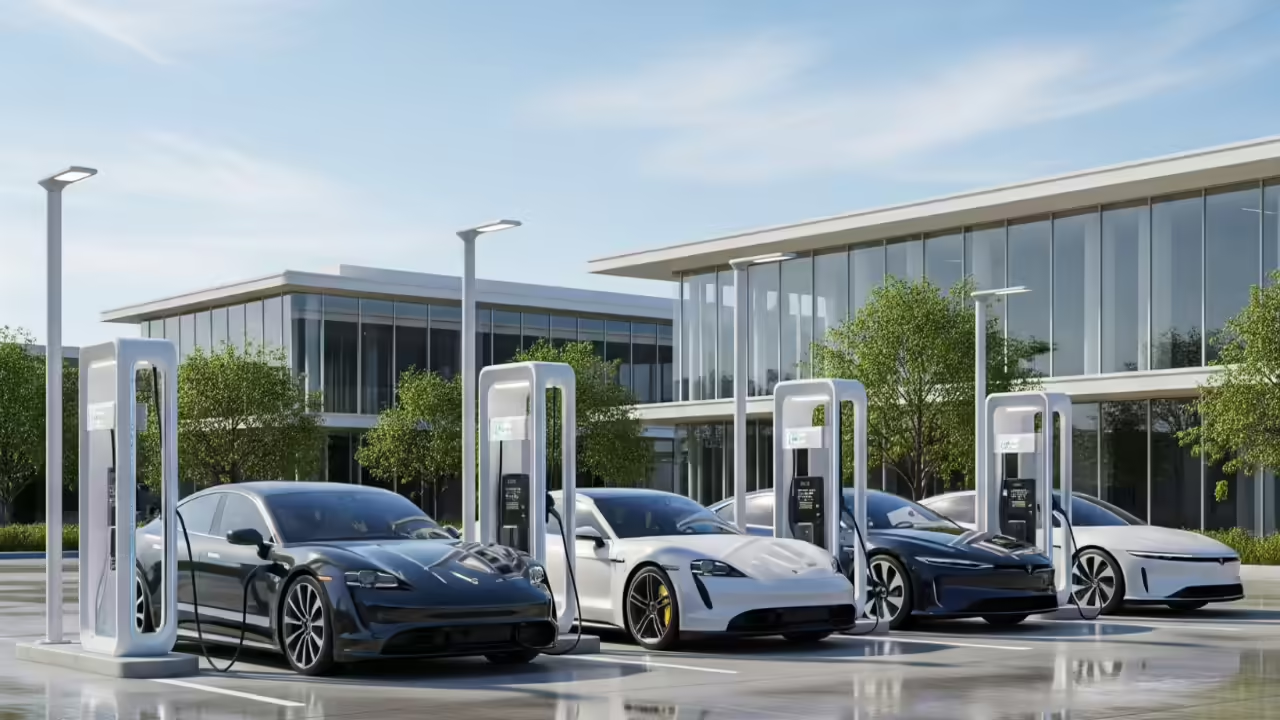Now Reading: UAE EV Insurance Costs 72% Higher Than Petrol Cars: Key Reasons
-
01
UAE EV Insurance Costs 72% Higher Than Petrol Cars: Key Reasons
UAE EV Insurance Costs 72% Higher Than Petrol Cars: Key Reasons

Table of Contents
The United Arab Emirates UAE is witnessing a significant surge in electric vehicle (EV) adoption, driven by government incentives, expanding charging infrastructure, and a growing range of EV models. However, one aspect of EV ownership remains a challenge: insurance premiums. Recent reports indicate that insuring an electric vehicle in the UAE now costs, on average, 72% more than insuring a petrol-powered car. This article delves into the reasons behind this disparity and what it means for potential EV buyers.
Understanding the Premium Disparity
According to data compiled by Insurancemarket.ae, a leading insurance provider in the UAE, the average comprehensive insurance policy for an EV stands at approximately AED 4,992 annually. In contrast, a similar policy for a petrol or diesel-powered vehicle averages around AED 2,895. This stark difference has raised questions among consumers and industry experts alike.
Hitesh Motwani, Deputy CEO of Insurancemarket.ae, attributes the higher premiums to several factors:
- Expensive Repairs and Parts: EVs are equipped with costly battery packs, advanced driver-assistance system (ADAS) sensors, and structural modules. Replacing a single battery can cost tens of thousands of dirhams. Additionally, many EV parts are vehicle identification number (VIN)-specific and require international sourcing, leading to higher repair costs.
- Limited Certified Repair Centers: The UAE has a limited number of certified EV repair centers. Not all workshops possess the necessary equipment or trained technicians to handle complex EV repairs, leading to longer repair times and increased costs.
- Supply Chain Constraints: The global supply chain for EV parts remains constrained. Delays in obtaining certified components can extend repair timelines, increasing downtime costs for insurers.
Impact of 2024 Floods on EV Insurance

The unprecedented floods that hit the UAE in April 2024 further exacerbated the situation. Many EV batteries were damaged, leading to a spike in insurance claims. The increased frequency of claims and the high cost of repairs contributed to the rise in insurance premiums for EVs.
Global Perspective: UAE’s Position
The UAE’s experience mirrors that of other countries. In the United States, EV insurance premiums are about 50% higher than those for petrol vehicles. Similarly, China faced steep premiums during its early adoption phase. However, China’s proactive approach introducing EV-specific underwriting standards and creating large networks of certified repair workshops helped reduce premiums over time.
Sebastian Fuchs, General Manager of AutoData, a leading automotive data and AI platform in the UAE, emphasizes the importance of investing in certified repair infrastructure, introducing consistent standards, and improving data transparency to accelerate cost normalization.
Market Outlook: A Gradual Shift

Despite the current challenges, there is optimism in the market. The growing number of EVs on UAE roads is prompting insurers to reassess risk and develop more attractive packages for consumers. Additionally, the Central Bank of the UAE has encouraged discounts, allowing companies to reduce premiums by up to 25% for qualifying vehicles.
As insurers gain more experience with EV claims and the repair ecosystem matures, the cost difference between petrol and electric vehicles is expected to shrink, even if it does not disappear entirely.
Conclusion
While the higher insurance premiums for electric vehicles in the UAE present a challenge for potential buyers, the long-term benefits of EV ownership such as lower fuel and maintenance costs—continue to make them an attractive option. As the EV market matures and infrastructure improves, it is anticipated that insurance costs will become more competitive, aligning more closely with those of petrol-powered vehicles.
For consumers considering the switch to an electric vehicle, it is advisable to research insurance options thoroughly, taking into account factors such as repair costs, availability of certified repair centers, and potential discounts. Staying informed will ensure that the transition to an electric vehicle is both economically and environmentally beneficial.
Read More:- Deyaar’s Latest Announcement Shakes Up the UAE Property Market






















